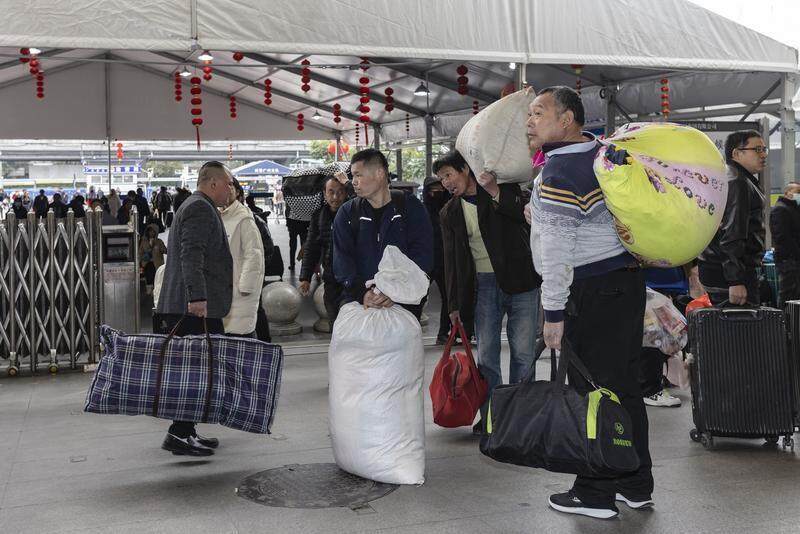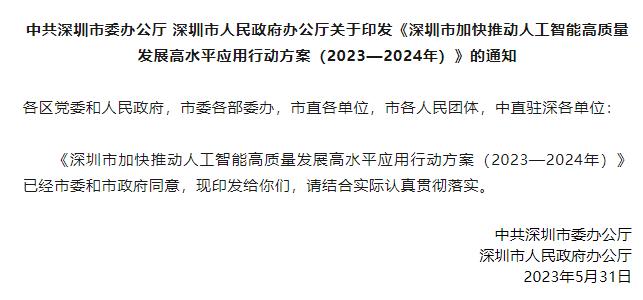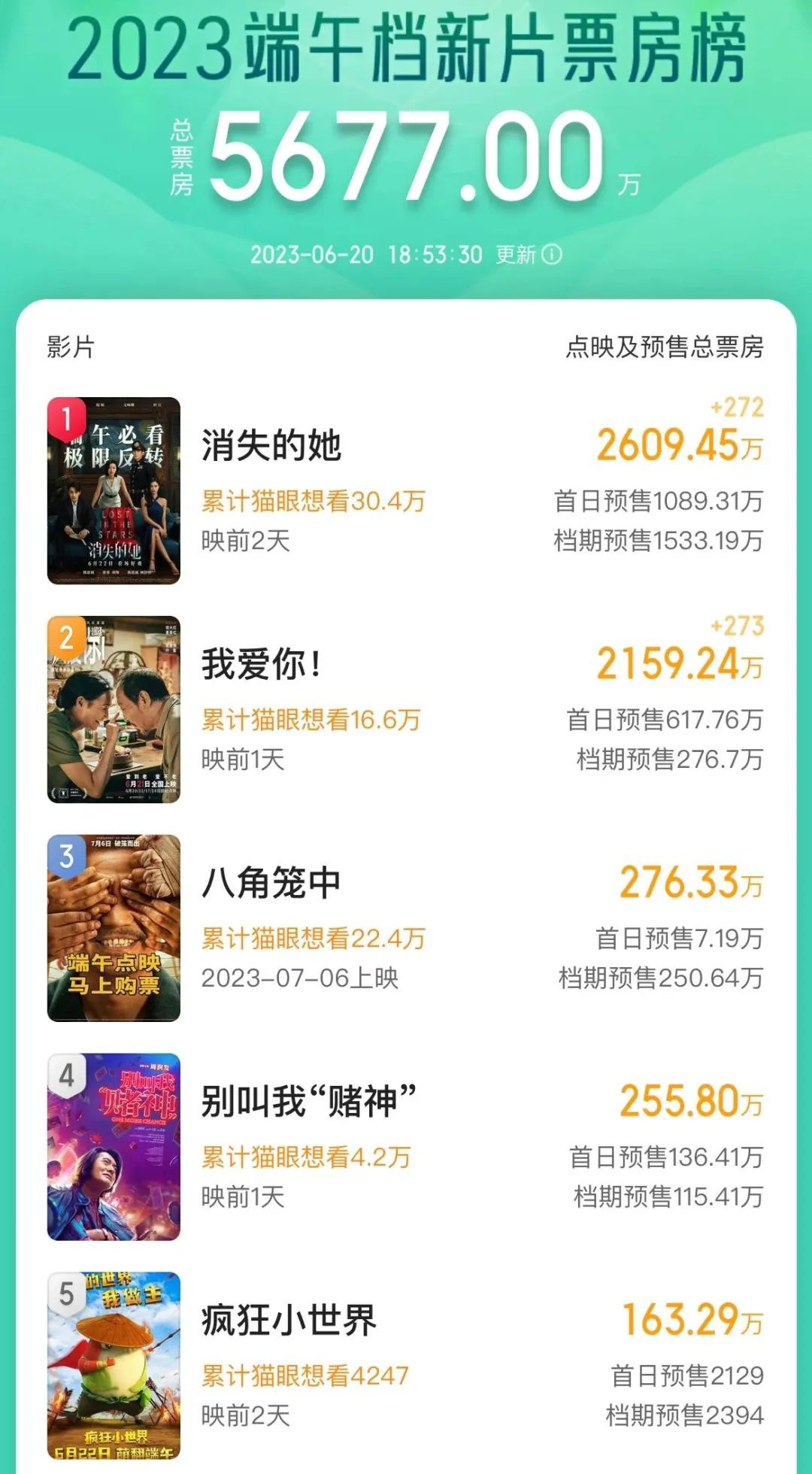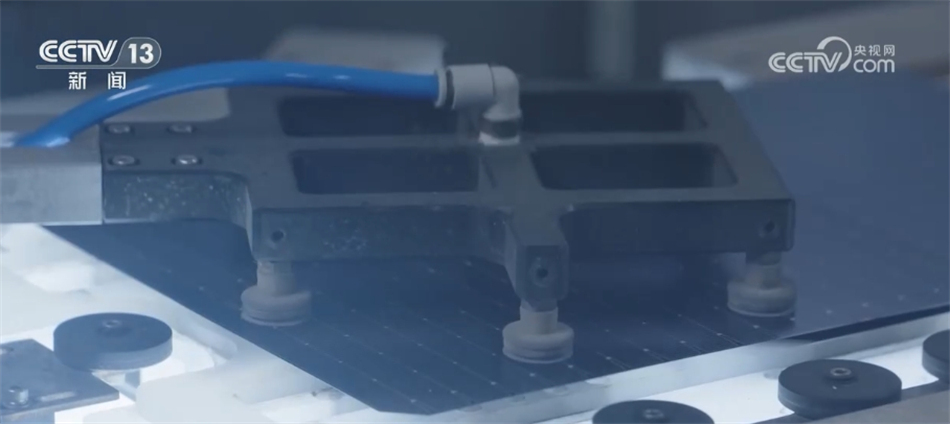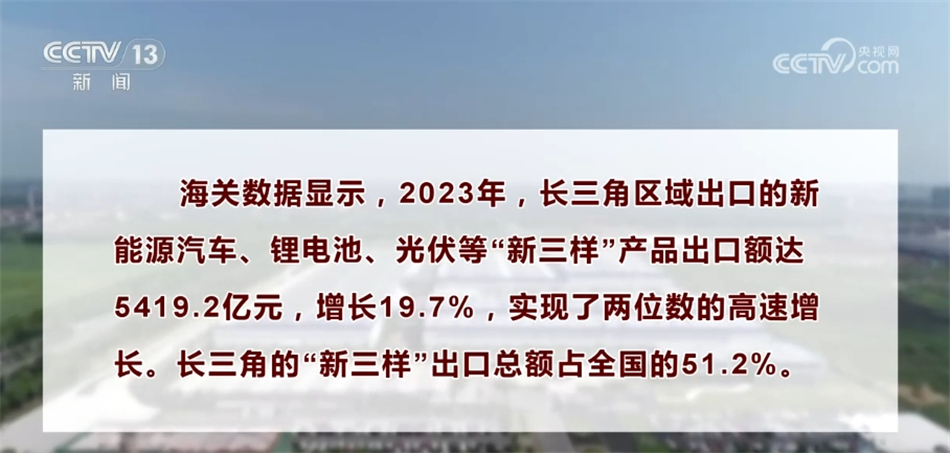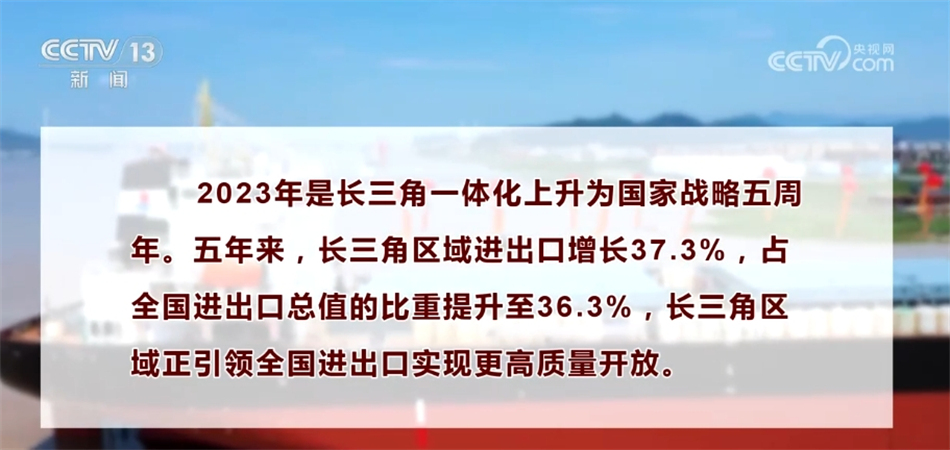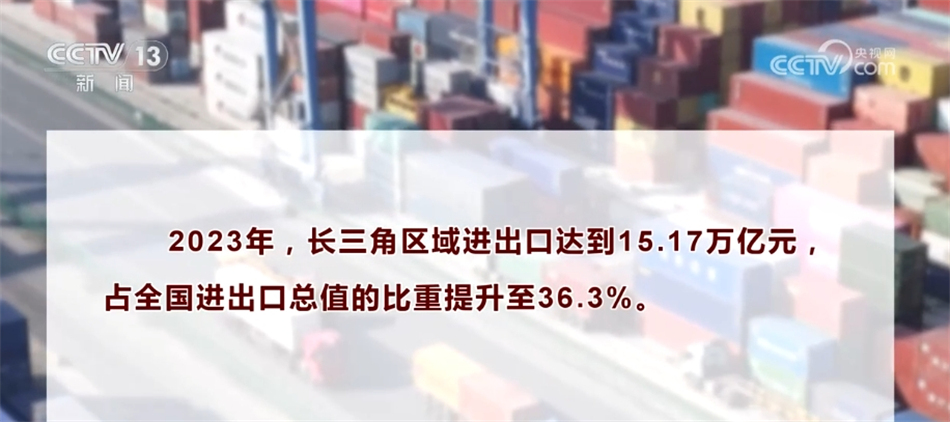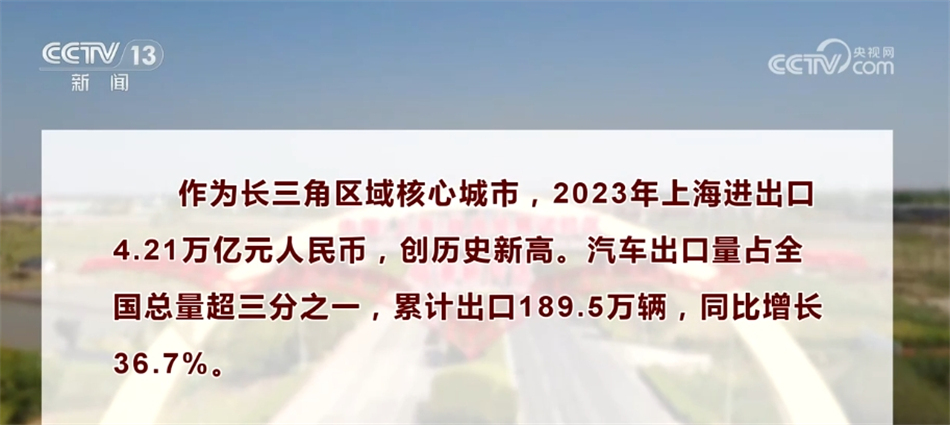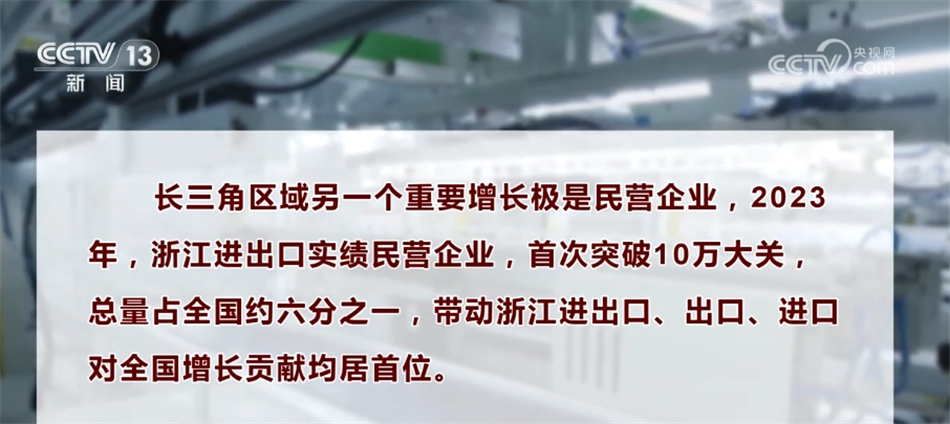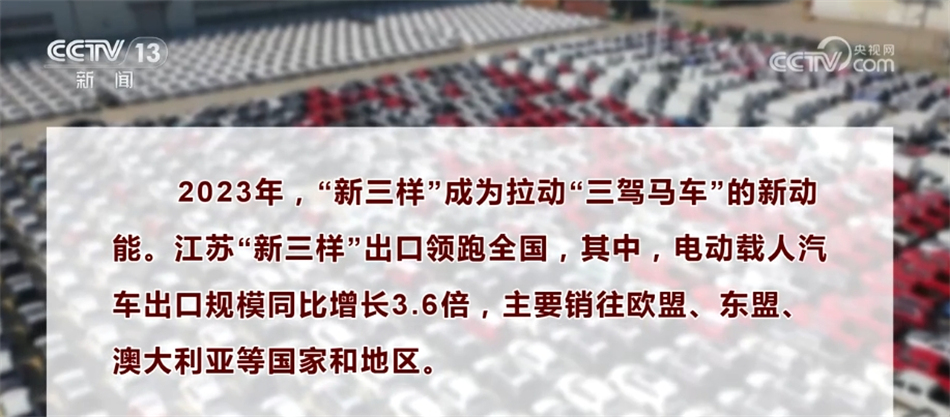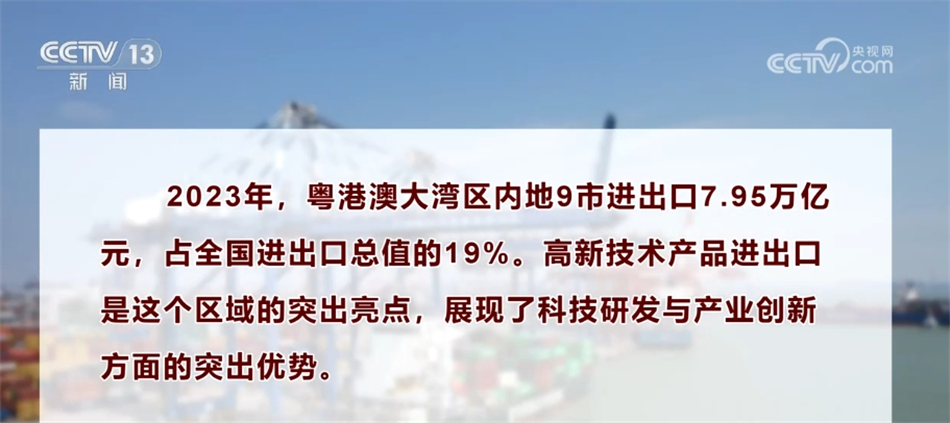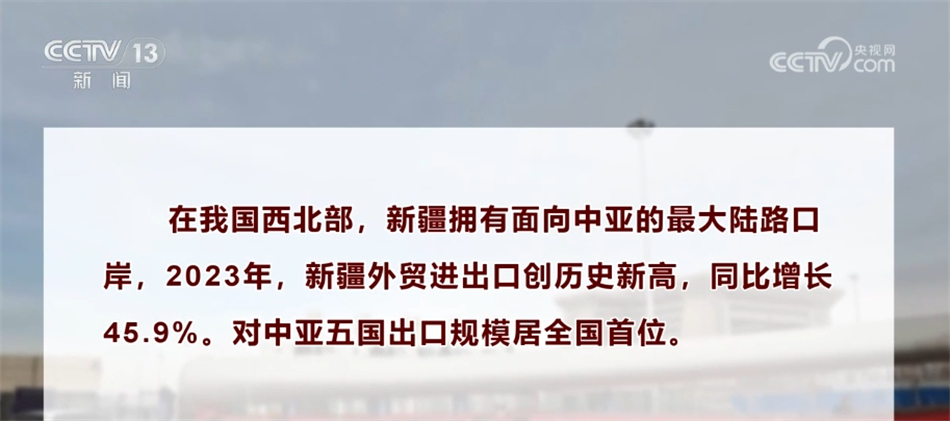(The 21st meeting of the 7th the NPC Standing Committee was adopted on September 4th, 1991, and the 25th meeting of the 10th the NPC Standing Committee was revised for the first time on December 29th, 2006. The 22nd meeting of the 13th the NPC Standing Committee was revised for the second time on October 17th, 2020 according to the Decision of the 29th meeting of the 11th the NPC Standing Committee on October 26th, 2012.)
Catalogue
Chapter I General Principles
Chapter II Family Protection
Chapter III School Protection
Chapter IV Social Protection
Chapter V Network Protection
Chapter VI Government Protection
Chapter VII Judicial Protection
Chapter VIII Legal Liability
Chapter IX Supplementary Provisions
Chapter I General Principles
Article 1 This Law is formulated in accordance with the Constitution in order to protect the physical and mental health of minors, safeguard their legitimate rights and interests, promote their all-round development in morality, intelligence, physique, beauty and labor, train socialist builders and successors with ideals, morality, education and discipline, and train new people of the times who are responsible for national rejuvenation.
Article 2 Minors mentioned in this Law refer to citizens under the age of 18.
Article 3 The state guarantees minors’ rights such as survival, development, protection and participation.
Minors enjoy all rights equally according to law, and are not discriminated against because of their nationality, race, sex, household registration, occupation, religious belief, education level, family status and physical and mental health status.
Article 4 The protection of minors shall adhere to the principle of being in the best interests of minors. Handling matters involving minors shall meet the following requirements:
(a) to give special and priority protection to minors;
(2) Respecting the personal dignity of minors;
(three) to protect the privacy and personal information of minors;
(four) to adapt to the laws and characteristics of the healthy development of minors;
(five) to listen to the opinions of minors;
(6) Combination of protection and education.
Article 5 The state, society, schools and families shall educate minors in ideals, morality, science, culture, the rule of law, national security, health and labor, strengthen education in patriotism, collectivism and Socialism with Chinese characteristics, cultivate public morality of loving the motherland, people, labor, science and socialism, resist the erosion of capitalism, feudalism and other decadent ideas, and guide minors to establish and develop.
Article 6 Protecting minors is the common responsibility of state organs, armed forces, political parties, people’s organizations, enterprises and institutions, social organizations, urban and rural grassroots mass autonomous organizations, guardians of minors and other adults.
The state, society, schools and families should educate and help minors to safeguard their legitimate rights and interests and enhance their awareness and ability of self-protection.
Article 7 Parents or other guardians of minors shall assume guardianship duties for minors according to law.
The state takes measures to guide, support, help and supervise the parents or other guardians of minors to perform their guardianship duties.
Eighth people’s governments at or above the county level shall incorporate the protection of minors into the national economic and social development plan, and the relevant funds shall be included in the government budget at the corresponding level.
Ninth people’s governments at or above the county level shall establish a coordination mechanism for the protection of minors, and make overall plans, coordinate, supervise and guide the relevant departments to do a good job in the protection of minors within their respective responsibilities. The specific work of the coordination mechanism shall be undertaken by the civil affairs department of the people’s government at or above the county level, and the provincial people’s government may also determine that it shall be undertaken by other relevant departments according to local actual conditions.
Article 10 The Communist Youth League, women’s federations, trade unions, disabled persons’ federations, committees for caring for the next generation, youth federations, student federations, young pioneers, other people’s organizations and relevant social organizations shall assist people’s governments at all levels and their relevant departments, people’s procuratorates and people’s courts in the protection of minors and safeguard their legitimate rights and interests.
Article 11 Any organization or individual has the right to dissuade, stop or report or accuse to the public security, civil affairs, education and other relevant departments when it finds that the situation is not conducive to the physical and mental health of minors or infringes on their legitimate rights and interests.
State organs, residents’ committees, villagers’ committees, units in close contact with minors and their staff members shall report to the relevant departments of public security, civil affairs, education and so on immediately if they find that the physical and mental health of minors has been infringed, suspected of being infringed or faced with other dangerous situations in their work.
The relevant departments shall promptly accept and dispose of reports, complaints or reports involving minors in accordance with the law, and inform the relevant units and personnel of the results in an appropriate manner.
Article 12 The State encourages and supports scientific research on the protection of minors, establishes relevant disciplines and specialties, and strengthens personnel training.
Article 13 The State shall establish and improve the statistical investigation system for minors, carry out statistics, investigation and analysis on their health and education, and publish relevant information on the protection of minors.
Article 14 The State shall commend and reward organizations and individuals that have made remarkable achievements in the protection of minors.
Chapter II Family Protection
Fifteenth parents or other guardians of minors should learn family education knowledge, accept family education guidance, and create a good, harmonious and civilized family environment.
Other adult family members living together shall assist the parents or other guardians of minors in raising, educating and protecting minors.
Sixteenth parents or other guardians of minors shall perform the following guardianship duties:
(a) to provide life, health and safety protection for minors;
(two) pay attention to the physiological, psychological and emotional needs of minors;
(three) to educate and guide minors to abide by the law, be diligent and frugal, and develop good ideological and moral character and behavior habits;
(four) to carry out safety education for minors and improve their awareness and ability of self-protection;
(five) respect for minors’ right to education, and ensure that school-age minors receive and complete compulsory education according to law;
(six) to protect minors’ time for rest, entertainment and physical exercise, and to guide minors to carry out activities beneficial to their physical and mental health;
(seven) to properly manage and protect the property of minors;
(eight) to represent minors to carry out civil legal acts according to law;
(nine) to prevent and stop the bad behavior and illegal and criminal behavior of minors, and to carry out reasonable discipline;
(10) Other guardianship duties that should be performed.
Seventeenth parents or other guardians of minors shall not commit the following acts:
(a) abuse, abandonment, illegal adoption of minors or domestic violence against minors;
(two) laissez-faire, abetting or using minors to commit illegal and criminal acts;
(3) laissez-faire, instigating minors to participate in cults and superstitious activities or to accept violations such as terrorism, separatism and extremism;
(four) laissez-faire, instigating minors to smoke (including electronic cigarettes, the same below), drink, gamble, vagrants and beggars or bully others;
(five) letting or forcing minors who should receive compulsory education to drop out of school or drop out of school;
(six) let minors indulge in the Internet and contact books, newspapers, movies, radio and television programs, audio-visual products, electronic publications and network information that are harmful or may affect their physical and mental health;
(seven) allowing minors to enter commercial entertainment places, bars, Internet service places and other places that are not suitable for minors’ activities;
(eight) to allow or force minors to engage in labor outside the provisions of the state;
(nine) allow or force minors to get married or enter into an engagement for minors;
(ten) illegal punishment, misappropriation of minors’ property or use of minors to seek illegitimate interests;
(eleven) other violations of minors’ physical and mental health, property rights and interests, or failure to perform the obligations of protecting minors according to law.
Eighteenth parents or other guardians of minors should provide a safe family living environment for minors, and promptly eliminate potential safety hazards that cause electric shock, burns, falls and other injuries; Take measures such as providing child safety seats and educating minors to abide by traffic rules to prevent minors from being injured by traffic accidents; Improve the awareness of outdoor safety protection and avoid accidents such as drowning and animal injury for minors.
Nineteenth parents or other guardians of minors shall, according to the age and intellectual development of minors, listen to the opinions of minors and fully consider their true wishes before making decisions related to their rights and interests.
Twentieth parents or other guardians of minors who find that the physical and mental health of minors has been infringed, suspected of being infringed or other legitimate rights and interests have been infringed shall timely understand the situation and take protective measures; If the situation is serious, it shall immediately report to the public security, civil affairs, education and other departments.
Article 21 Parents or other guardians of minors shall not leave minors under the age of eight or who need special care due to physical or psychological reasons unattended, or entrust them to temporary care of persons without or with limited capacity for civil conduct, suffering from serious infectious diseases or other unsuitable conditions.
Parents or other guardians of minors shall not make minors under the age of 16 live alone without guardianship.
Article 22 If the parents or other guardians of minors cannot fully perform their guardianship duties within a certain period of time due to reasons such as going out to work, they shall entrust a person with full capacity for civil conduct who has the care ability to take care of them; Without justifiable reasons, no one may entrust others to take care of it.
Parents or other guardians of minors should comprehensively consider their moral quality, family status, physical and mental health status, emotional connection with minors’ lives, etc., and listen to the opinions of minors who have the ability to express their wishes.
In any of the following circumstances, it shall not be the principal:
(a) have committed sexual assault, abuse, abandonment, trafficking, violence and other illegal and criminal acts;
(2) Having bad habits such as drug abuse, alcoholism and gambling;
(3) Having refused to perform or been slow to perform the duties of guardianship and care for a long time;
(four) other circumstances that are not suitable for being the principal.
Twenty-third parents or other guardians of minors shall promptly notify the minors’ schools, kindergartens and the residents’ committees and villagers’ committees of their actual places of residence in writing, and strengthen communication with the schools and kindergartens where minors are located; Contact and communicate with minors and clients at least once a week, understand the life, study and psychology of minors, and give them family care.
Parents or other guardians of minors shall take timely intervention measures after receiving the notice from the clients, residents’ committees, villagers’ committees, schools and kindergartens about the psychological and behavioral abnormalities of minors.
Article 24 When a minor’s parents divorce, they should properly handle matters such as the upbringing, education, visits and property of minor children, and listen to the opinions of minors who have the ability to express their wishes. Do not compete for custody by robbing or hiding minor children.
After a minor’s parents divorce, the party who does not directly raise the minor’s children shall visit the minor’s children in accordance with the time and manner determined by the agreement, the judgment of the people’s court or mediation, without affecting the minor’s study and life, and the party who directly raises them shall cooperate, except that the people’s court has suspended the visiting right according to law.
Chapter III School Protection
Twenty-fifth schools should fully implement the national education policy, adhere to moral education, implement quality education, improve the quality of education, pay attention to cultivating the cognitive ability, cooperation ability, innovation ability and practical ability of underage students, and promote the all-round development of underage students.
Schools should establish a system for the protection of underage students, improve students’ behavior norms, and cultivate good behavior habits of underage students who abide by the law.
Twenty-sixth kindergartens should do a good job in conservation and education, follow the laws of children’s physical and mental development, implement enlightenment education, and promote the harmonious development of children in physical, intellectual and moral aspects.
Twenty-seventh schools and kindergartens should respect the personal dignity of minors, and may not impose corporal punishment on minors, corporal punishment in disguised form or other acts that insult personal dignity.
Twenty-eighth schools should protect the rights of underage students to receive education, and may not expel underage students in violation of state regulations or in disguised form.
Schools should register underage students who have not completed compulsory education and persuade them to return to school; If the persuasion is ineffective, it shall promptly report to the administrative department of education in writing.
Twenty-ninth schools should care for and cherish underage students, and may not discriminate against students because of their family, body, psychology and learning ability. Care should be provided for students with family difficulties and physical and mental disabilities; Students with abnormal behavior and learning difficulties should be patiently helped.
Schools should cooperate with relevant government departments to establish information files of left-behind underage students and disadvantaged underage students, and carry out care and assistance work.
Thirtieth schools shall, according to the characteristics of physical and mental development of minor students, conduct social life guidance, psychological health counseling, adolescent education and life education.
Article 31 Schools should organize underage students to participate in daily life labor, productive labor and service labor appropriate to their age, and help underage students master necessary labor knowledge and skills and develop good working habits.
Thirty-second schools and kindergartens should carry out publicity and education activities such as thrift, opposing waste, cherishing food, civilized diet, etc., to help minors establish a sense of shame in waste and pride in saving, and develop civilized, healthy and green living habits.
Thirty-third schools should cooperate with the parents or other guardians of minor students, reasonably arrange the study time of minor students, and ensure their time for rest, entertainment and physical exercise.
Schools shall not occupy national statutory holidays, rest days and summer and winter holidays, and organize underage students in compulsory education to make up lessons collectively, which will increase their learning burden.
Kindergartens and off-campus training institutions shall not conduct primary school curriculum education for preschool minors.
Thirty-fourth schools and kindergartens should provide necessary health care conditions and assist the health department to do a good job in the health care of minors in schools and kindergartens.
Thirty-fifth schools and kindergartens should establish a safety management system, provide safety education for minors, improve security facilities and equip security personnel to ensure the personal and property safety of minors during their stay at school and in the park.
Schools and kindergartens shall not carry out educational and teaching activities in school buildings and other facilities and places that endanger the personal safety and physical and mental health of minors.
Schools and kindergartens should protect minors’ physical and mental health and prevent personal injury accidents when they arrange minors to participate in collective activities such as cultural entertainment and social practice.
Article 36 Schools and kindergartens that use school buses should establish and improve the school bus safety management system, be equipped with safety management personnel, conduct regular safety inspections on school buses, conduct safety education for school bus drivers, explain the knowledge of school bus safety riding to minors, and cultivate their skills in emergency handling of school bus safety accidents.
Thirty-seventh schools and kindergartens shall, according to the needs, formulate plans to deal with natural disasters, accidents, public health incidents and other emergencies and accidental injuries, equip them with corresponding facilities and conduct necessary drills on a regular basis.
Minors in the school, the park or the school, the park organized off-campus activities, personal injury accidents, schools, kindergartens should immediately rescue, properly handle, timely notify the parents or other guardians of minors, and report to the relevant departments.
Thirty-eighth schools and kindergartens shall not arrange minors to participate in commercial activities, and shall not sell or ask minors and their parents or other guardians to buy designated goods and services.
Schools and kindergartens shall not cooperate with off-campus training institutions to provide paid course counseling for minors.
Thirty-ninth schools should establish a system of prevention and control of student bullying, and carry out education and training on prevention and control of student bullying for faculty and students.
The school shall immediately stop the bullying of students and notify the parents or other guardians of the bullying and bullied underage students to participate in the identification and handling of bullying; Give timely psychological counseling, education and guidance to relevant minor students; Give necessary family education guidance to the parents or other guardians of relevant minor students.
For underage students who commit bullying, schools should strengthen discipline according to the nature and degree of bullying. For serious bullying, the school shall not conceal it, but shall promptly report it to the public security organ and the administrative department of education, and cooperate with relevant departments to deal with it according to law.
Fortieth schools and kindergartens shall establish a work system for preventing sexual assault and harassment of minors. Schools and kindergartens shall not conceal illegal and criminal acts such as sexual assault and sexual harassment of minors, but shall promptly report to the public security organs and the administrative department of education, and cooperate with relevant departments to deal with them according to law.
Schools and kindergartens should carry out sex education suitable for minors, and improve their awareness and ability of self-protection against sexual assault and sexual harassment. Schools and kindergartens should take relevant protective measures in time for minors who have been sexually assaulted or harassed.
Forty-first infant care service institutions, early education service institutions, off-campus training institutions, off-campus trust institutions, etc. shall refer to the relevant provisions of this chapter and do a good job in the protection of minors according to the growth characteristics and laws of minors at different ages.
Chapter IV Social Protection
Article 42 The whole society should establish a good habit of caring for and caring for minors.
The state encourages, supports and guides people’s organizations, enterprises and institutions, social organizations and other organizations and individuals to carry out social activities and services conducive to the healthy growth of minors.
Article 43 Residents’ committees and villagers’ committees shall set up special personnel to take charge of the protection of minors, assist relevant government departments to publicize the laws and regulations on the protection of minors, guide, help and supervise the parents or other guardians of minors to perform their guardianship duties according to law, establish information files of left-behind minors and minors in distress and give them care and help.
Residents’ committees and villagers’ committees shall assist the relevant government departments to supervise the entrusted care of minors. If they find that the entrusted person lacks the care ability and is slow to perform the care duties, they shall report to the relevant government departments in time and inform the parents or other guardians of the minors to help and urge the entrusted person to perform the care duties.
Forty-fourth patriotic education bases, libraries, youth palaces, children’s activity centers and Children’s Home should be open to minors free of charge; Museums, memorial halls, science and technology museums, exhibition halls, art galleries, cultural centers, community public internet service places, theaters, stadiums, zoos, botanical gardens, parks and other places shall be open to minors free of charge or at preferential rates in accordance with relevant regulations.
The state encourages patriotic education bases, museums, science and technology museums, art galleries and other public venues to set up special sessions for minors to provide targeted services for minors.
The state encourages state organs, enterprises, institutions and military units to develop their own educational resources and set up open days for minors to provide support for minors’ thematic education, social practice and professional experience.
The state encourages scientific research institutions and scientific and technological social organizations to carry out scientific popularization activities for minors.
Forty-fifth urban public transport, highways, railways, waterways, air passenger transport, etc. shall implement free or preferential fares for minors in accordance with relevant regulations.
Article 46 The State encourages large public places, public transport vehicles, tourist attractions and other places to set up maternal and child rooms, baby care tables, toilets, hand washing tables and other sanitary facilities convenient for children to provide convenience for minors.
Article 47 No organization or individual may, in violation of relevant regulations, restrict the care or preferential treatment that minors should enjoy.
Article 48 The State encourages the creation, publication, production and dissemination of books, newspapers, films, radio and television programs, works of stage art, audio-visual products, electronic publications and online information that are conducive to the healthy growth of minors.
Forty-ninth news media should strengthen publicity on the protection of minors, and conduct supervision by public opinion on violations of the legitimate rights and interests of minors. News media coverage of incidents involving minors should be objective, prudent and moderate, and should not infringe on minors’ reputation, privacy and other legitimate rights and interests.
Article 50 It is forbidden to produce, copy, publish, publish and disseminate books, newspapers, magazines, movies, radio and television programs, stage works of art, audio-visual products, electronic publications and online information that contain contents that endanger the physical and mental health of minors, such as obscenity, pornography, violence, cults, superstitions, gambling, induced suicide, terrorism, separatism and extremism.
Article 51 If any book, newspaper, film, radio and television program, stage art work, audio-visual product, electronic publication or network information published, released or disseminated by any organization or individual contains contents that may affect the physical and mental health of minors, it shall be prompted in a conspicuous way.
Article 52 It is forbidden to make, copy, publish, disseminate or possess pornographic articles and online information about minors.
Article 53 No organization or individual may publish, broadcast, post or distribute advertisements containing contents that endanger the physical and mental health of minors; Do not broadcast, post or distribute commercial advertisements in schools and kindergartens; Do not use school uniforms, teaching materials, etc. to publish or publish commercial advertisements in disguise.
Article 54 Abduction, kidnapping, ill-treatment and illegal adoption of minors are prohibited, and sexual assault and harassment of minors are prohibited.
It is forbidden to coerce, entice or instigate minors to join underworld organizations or engage in illegal and criminal activities.
It is forbidden to coerce, trick or use minors to beg.
Article 55 The production and sale of food, medicines, toys, utensils, game amusement equipment and amusement facilities for minors shall conform to national or industrial standards and shall not endanger the personal safety and physical and mental health of minors. The producers of the above-mentioned products shall indicate the precautions in a prominent position, and those without the precautions shall not be sold.
Fifty-sixth public places where minors concentrate should meet the national or industrial safety standards, and take corresponding safety protection measures. The facilities that may have safety risks shall be maintained regularly, and safety warning signs shall be set in a prominent position, indicating the age range and precautions; When necessary, special personnel shall be arranged to take care of it.
Large shopping malls, supermarkets, hospitals, libraries, museums, science and technology museums, playgrounds, stations, docks, airports, tourist attractions and other places and operating units shall set up safety alarm systems to search for lost minors. After receiving help, the operating unit of the place shall immediately start the safety alarm system, organize personnel to search and report to the public security organ.
When an emergency occurs in a public place, priority should be given to rescuing minors.
Fifty-seventh hotels, guesthouses, hotels and other accommodation operators, when receiving minors to stay, or receiving minors and adults to stay together, should ask the parents or other guardians’ contact information, the identity relationship of the check-in personnel and other relevant information; Anyone who is found to be suspected of violating the law and crime shall immediately report to the public security organ and contact the parents or other guardians of minors in time.
Fifty-eighth schools and kindergartens are not allowed to set up business entertainment places, bars, Internet service places and other places that are not suitable for minors’ activities. Operators of commercial song and dance entertainment places, bars, Internet service places and other places that are not suitable for minors’ activities shall not allow minors to enter; Electronic game equipment set up in entertainment places shall not be provided to minors except for national statutory holidays. Operators shall set up signs prohibiting minors from entering or restricting them in a prominent position; If it is difficult to determine whether they are minors, they shall be required to show their identity documents.
Fifty-ninth schools and kindergartens are not allowed to set up cigarette, wine and lottery sales outlets. It is forbidden to sell cigarettes, alcohol, lottery tickets or pay lottery prizes to minors. Operators of cigarettes, alcohol and lottery tickets shall set up signs in a prominent position not to sell cigarettes, alcohol or lottery tickets to minors; If it is difficult to determine whether they are minors, they shall be required to show their identity documents.
No one is allowed to smoke or drink in schools, kindergartens or other public places where minors are concentrated.
Article 60 It is forbidden to provide or sell controlled knives or other instruments that may cause serious injuries to minors. If it is difficult for the business operator to determine whether the purchaser is a minor, it shall require him to show his identity certificate.
Article 61 No organization or individual may recruit minors under the age of 16, unless otherwise stipulated by the state.
Places that are not suitable for minors’ activities, such as commercial entertainment places, bars, and Internet service places, may not recruit minors who have reached the age of 16.
Units and individuals that employ minors who have reached the age of 16 shall implement the provisions of the state on types of work, working hours, labor intensity and protective measures, and shall not arrange them to engage in overweight, toxic and harmful labor or dangerous operations that endanger the physical and mental health of minors.
No organization or individual may organize minors to perform activities that endanger their physical and mental health. With the consent of the parents or other guardians of minors, if minors participate in performances, program production and other activities, the organizers of the activities shall protect the legitimate rights and interests of minors in accordance with relevant state regulations.
Article 62 When recruiting staff, a unit that is in close contact with minors shall inquire from the public security organ and the people’s procuratorate whether the applicant has criminal records such as sexual assault, abuse, trafficking and violence. If he is found to have the above-mentioned behavior record, he shall not be employed.
Units that are in close contact with minors shall regularly inquire whether the staff members have the above-mentioned illegal and criminal records every year. If it is found through inquiry or other means that its staff members have the above acts, they shall be dismissed in time.
Article 63 No organization or individual may conceal, destroy or illegally delete minors’ letters, diaries, emails or other online communication contents.
Except in the following circumstances, no organization or individual may open or consult minors’ letters, diaries, emails or other online communication contents:
(1) Parents or other guardians of minors without civil capacity open and consult on behalf of minors;
(2) Conducting inspection according to law for national security or tracing criminal offences;
(3) In order to protect the personal safety of minors in an emergency.
Chapter V Network Protection
Article 64 The state, society, schools and families should strengthen the publicity and education of minors’ network literacy, cultivate and improve minors’ network literacy, enhance minors’ awareness and ability of scientific, civilized, safe and rational use of the network, and protect minors’ legitimate rights and interests in cyberspace.
Article 65 The state encourages and supports the creation and dissemination of network content that is conducive to the healthy growth of minors, and encourages and supports the research, development, production and use of network technologies, products and services that are specially targeted at minors and suitable for their physical and mental health characteristics.
Article 66 The network information department and other relevant departments shall strengthen the supervision and inspection of minors’ network protection, punish those who use the network to engage in activities that endanger minors’ physical and mental health according to law, and provide minors with a safe and healthy network environment.
Article 67 The network information department shall, together with the public security, culture and tourism, press and publication, movies, radio and television departments, determine the types, scope and judgment criteria of network information that may affect the physical and mental health of minors according to the needs of protecting minors at different ages.
Article 68 Departments such as press and publication, education, health, culture and tourism, and online information should regularly carry out publicity and education to prevent minors from indulging in the Internet, supervise network products and service providers to fulfill their obligations to prevent minors from indulging in the Internet, guide families, schools and social organizations to cooperate with each other, and take scientific and reasonable measures to prevent and intervene minors from indulging in the Internet.
No organization or individual may interfere with minors’ addiction to the Internet in a way that infringes on their physical and mental health.
Sixty-ninth schools, communities, libraries, cultural centers, youth palaces and other places to provide internet service facilities for minors, should install network protection software for minors or take other security protection technical measures.
Manufacturers and sellers of intelligent terminal products shall install network protection software for minors on their products, or inform users of the installation channels and methods of network protection software for minors in a significant way.
Article 70 Schools should make rational use of the Internet to carry out teaching activities. Without the permission of the school, underage students are not allowed to bring smart terminal products such as mobile phones into the classroom, and those brought into the school should be managed in a unified way.
If the school finds that minor students are addicted to the Internet, it shall promptly inform their parents or other guardians to jointly educate and guide the minor students and help them to resume their normal study life.
Seventy-first parents or other guardians of minors should improve their network literacy, regulate their own use of the network, and strengthen the guidance and supervision of minors’ use of the network.
Parents or other guardians of minors should prevent minors from contacting network information that is harmful or may affect their physical and mental health by installing network protection software for minors on smart terminal products, selecting service modes and management functions suitable for minors, reasonably arrange the time for minors to use the network, and effectively prevent minors from indulging in the network.
Seventy-second information processors should follow the principles of legality, justice and necessity when processing personal information of minors through the Internet. The handling of personal information of minors under the age of 14 shall obtain the consent of the parents or other guardians of minors, except as otherwise provided by laws and administrative regulations.
If minors, parents or other guardians require the information processor to correct or delete the personal information of minors, the information processor shall take timely measures to correct or delete it, except as otherwise provided by laws and administrative regulations.
Article 73 If a network service provider discovers that a minor publishes private information through the network, it shall promptly prompt him and take necessary protective measures.
Seventy-fourth network products and services providers shall not provide minors with products and services that induce their addiction.
Network service providers such as online games, live webcasts, online audio and video, and online social networking should set up corresponding functions such as time management, authority management, and consumption management for minors to use their services.
Online education network products and services that serve minors shall not insert online game links or push advertisements and other information unrelated to teaching.
Article 75 Online games can only be operated after being approved according to law.
The state establishes a unified e-authentication system for online games for minors. Online game service providers should require minors to register and log in online games with real identity information.
Online game service providers shall, in accordance with the relevant provisions and standards of the state, classify game products, make age-appropriate tips, and take technical measures to prevent minors from contacting inappropriate games or game functions.
Online game service providers shall not provide online game services to minors from 22: 00 to 8: 00 the next day.
Article 76 A webcast service provider shall not provide a webcast publisher account registration service for minors under the age of 16; When providing online live broadcast publisher account registration service for minors who have reached the age of 16, their identity information should be authenticated and their parents or other guardians should agree.
Article 77 No organization or individual may insult, slander, threaten or maliciously damage the image of minors through the Internet in the form of words, pictures, audio and video.
Minors who suffer from cyber bullying, their parents or other guardians have the right to notify network service providers to take measures such as deleting, blocking and disconnecting links. After receiving the notice, the network service provider shall take necessary measures in time to stop cyber bullying and prevent the information from spreading.
Seventy-eighth network products and services providers should establish convenient, reasonable and effective channels for complaints and reports, publicize information such as complaints and reports, and promptly accept and handle complaints and reports involving minors.
Article 79 Any organization or individual who finds that online products and services contain information that is harmful to the physical and mental health of minors has the right to complain and report to the providers of online products and services or the departments of online information and public security.
Article 80 If a network service provider discovers that a user has published or disseminated information that may affect the physical and mental health of minors without making a significant prompt, it shall give a prompt or notify the user to give a prompt; Without prompting, relevant information shall not be transmitted.
If a network service provider finds that a user publishes or disseminates information that is harmful to the physical and mental health of minors, it shall immediately stop transmitting relevant information, take measures such as deleting, shielding and disconnecting links, keep relevant records, and report to the network information and public security departments.
If a network service provider finds that a user uses its network service to commit illegal and criminal acts against minors, it shall immediately stop providing network services to the user, keep relevant records and report to the public security organ.
Chapter VI Government Protection
Article 81 The functional departments of the people’s governments at or above the county level that undertake the specific work of the coordination mechanism for the protection of minors shall specify the relevant internal organs or specialized personnel to be responsible for the protection of minors.
Township people’s governments and sub-district offices shall set up workstations for the protection of minors or designate specialized personnel to handle minor-related affairs in a timely manner; Support and guide the residents’ committees and villagers’ committees to set up special posts to protect minors.
Article 82 People’s governments at all levels shall incorporate family education guidance services into urban and rural public service systems, publicize family education knowledge, and encourage and support relevant people’s organizations, enterprises, institutions and social organizations to carry out family education guidance services.
Article 83 People’s governments at all levels shall protect minors’ right to education, and take measures to ensure that left-behind minors, minors in distress and disabled minors receive compulsory education.
For underage students who have not completed compulsory education, the education administrative department shall order their parents or other guardians to send them to school for compulsory education.
Article 84 People’s governments at all levels should develop nursery and preschool education, run well infant care service institutions and kindergartens, and support social forces to set up maternal and infant rooms, infant care service institutions and kindergartens according to law.
The local people’s governments at or above the county level and their relevant departments shall cultivate and train the teaching staff of infant care service institutions and kindergartens to improve their professional ethics and professional ability.
Article 85 People’s governments at all levels shall develop vocational education, ensure that minors receive vocational education or vocational skills training, and encourage and support people’s organizations, enterprises, institutions and social organizations to provide vocational skills training services for minors.
Eighty-sixth people’s governments at all levels should ensure that disabled minors who have the ability to receive general education and can adapt to campus life receive education in ordinary schools and kindergartens nearby; Guarantee disabled minors who do not have the ability to receive general education to receive preschool education, compulsory education and vocational education in special education schools and kindergartens.
People’s governments at all levels shall guarantee the conditions for running schools and kindergartens with special education, and encourage and support social forces to set up special education schools and kindergartens.
Article 87 Local people’s governments and their relevant departments shall ensure campus safety, supervise and guide schools, kindergartens and other units to implement campus safety responsibilities, and establish a mechanism for reporting, handling and coordinating emergencies.
Eighty-eighth public security organs and other relevant departments should maintain public security and traffic order around the campus according to law, set up monitoring equipment and traffic safety facilities, and prevent and stop illegal and criminal acts against minors.
Article 89 Local people’s governments shall establish and improve venues and facilities suitable for minors, support the construction and operation of public welfare venues and facilities for minors, encourage social forces to set up venues and facilities suitable for minors, and strengthen management.
Local people’s governments shall take measures to encourage and support schools to open cultural and sports facilities to minors free of charge or at preferential rates on national statutory holidays, rest days and summer and winter holidays.
The local people’s governments shall take measures to prevent any organization or individual from occupying or damaging the venues, houses and facilities of minors’ activity places such as schools, kindergartens and infant care services.
Article 90 People’s governments at all levels and their relevant departments shall provide health care and nutrition guidance to minors and provide health care services.
Health departments should regulate the vaccination of minors in accordance with the law, prevent and treat common and frequently-occurring diseases of minors, strengthen the prevention and supervision of infectious diseases, do a good job in injury prevention and intervention, and guide and supervise schools, kindergartens and infant care services to carry out health care work.
The administrative department of education should strengthen the mental health education of minors and establish a mechanism for early detection and timely intervention of psychological problems of minors. Health departments should do a good job in psychological treatment of minors, psychological crisis intervention and early identification, diagnosis and treatment of mental disorders.
Article 91 People’s governments at all levels and their relevant departments shall provide classified protection for minors in distress and take measures to meet their basic needs in life, education, safety, medical rehabilitation and housing.
Ninety-second in any of the following circumstances, the civil affairs department shall carry out temporary custody of minors according to law:
(1) Minors are vagrants and beggars or their identities are unknown, and their parents or other guardians cannot be found temporarily;
(2) The whereabouts of the guardian is unknown and no one else can act as the guardian;
(3) Guardians are unable to perform their guardianship duties due to their own objective reasons or due to natural disasters, accidents, public health incidents and other emergencies, resulting in the lack of guardianship of minors;
(4) The guardian refuses or neglects to perform his guardianship duties, resulting in the minors being left unattended;
(5) Guardians instigate and use minors to commit illegal and criminal acts, and minors need to be taken away and resettled;
(6) Minors are seriously injured by their guardians or face threats to their personal safety and need to be resettled urgently;
(seven) other circumstances prescribed by law.
Article 93 For minors under temporary guardianship, the civil affairs department may entrust their relatives to raise them, foster them at home, or entrust them to a minor rescue and protection institution or a child welfare institution for taking them in and raising them.
During the period of temporary guardianship, the civil affairs department can send the minor back to the guardian for custody if the guardian has the conditions to perform the guardianship duties again after evaluation.
Ninety-fourth in any of the following circumstances, the civil affairs department shall conduct long-term custody of minors according to law:
(1) Parents or other guardians of minors cannot be found;
(2) The guardian is dead or declared dead and no one else can act as the guardian;
(3) The guardian is incapable of guardianship and no other person can act as the guardian;
(four) the people’s court decided to revoke the qualification of guardian and designated the civil affairs department as the guardian;
(5) Other circumstances stipulated by law.
Article 95 After the adoption assessment, the civil affairs department may, according to law, hand over the minors under its long-term guardianship to eligible applicants for adoption. After the adoption relationship is established, the guardianship relationship between the civil affairs department and the minor is terminated.
Article 96 If the civil affairs department undertakes the duties of temporary guardianship or long-term guardianship, the departments of finance, education, health and public security shall cooperate according to their respective duties.
The people’s governments at or above the county level and their civil affairs departments shall, according to the needs, set up minors’ rescue and protection institutions and children’s welfare institutions to take in and raise minors under the care of the civil affairs departments.
Article 97 The people’s governments at or above the county level shall open a national unified hotline for the protection of minors, and promptly accept and refer complaints and reports that infringe upon the legitimate rights and interests of minors; Encourage and support people’s organizations, enterprises, institutions and social organizations to participate in the construction of service platforms, service hotlines and service sites for the protection of minors, and provide advice and help on the protection of minors.
Article 98 The State establishes an information inquiry system for criminals who violate the law and commit crimes such as sexual assault, abuse, trafficking and violent injury, and provides free inquiry services to units in close contact with minors.
Article 99 The local people’s governments shall cultivate, guide and regulate relevant social organizations and social workers to participate in the protection of minors, provide family education guidance services, and provide professional services for minors’ psychological counseling, rehabilitation assistance, guardianship and adoption evaluation.
Chapter VII Judicial Protection
Article 100 Public security organs, people’s procuratorates, people’s courts and judicial administrative departments shall perform their duties according to law and safeguard the legitimate rights and interests of minors.
Article 101 The public security organs, people’s procuratorates, people’s courts and judicial administrative departments shall designate specialized agencies or personnel to handle cases involving minors. Personnel handling cases involving minors shall receive special training and be familiar with the physical and mental characteristics of minors. There should be female staff in specialized agencies or specialized personnel.
The public security organs, the people’s procuratorates, the people’s courts and the judicial administrative departments shall implement evaluation and assessment standards suitable for the protection of minors for the above-mentioned institutions and personnel.
Article 102 When handling cases involving minors, public security organs, people’s procuratorates, people’s courts and judicial administrative departments should consider the physical and mental characteristics of minors and the needs of healthy growth, use languages and expressions that minors can understand, and listen to their opinions.
Article 103 Public security organs, people’s procuratorates, people’s courts, judicial administrative departments and other organizations and individuals shall not disclose the names, images, residences, schools and other information that may identify minors in relevant cases, except in the case of finding missing or abducted minors.
Article 104 Legal aid agencies or public security organs, people’s procuratorates, people’s courts and judicial administrative departments shall give assistance to minors who need legal aid or judicial assistance, and provide them with legal aid or judicial assistance according to law.
Legal aid institutions shall assign lawyers who are familiar with the physical and mental characteristics of minors to provide legal aid services for minors.
Legal aid institutions and lawyers’ associations shall provide guidance and training to lawyers handling legal aid cases for minors.
Article 105 People’s procuratorates exercise procuratorial power to supervise litigation activities involving minors according to law.
Article 106 If the legitimate rights and interests of minors are violated and relevant organizations and individuals fail to file a lawsuit on their behalf, the people’s procuratorate may urge and support them to file a lawsuit; Involving public interests, the people’s procuratorate has the right to file a public interest lawsuit.
Article 107 When trying cases of inheritance, the people’s courts shall protect minors’ rights of inheritance and bequest according to law.
When the people’s court tries a divorce case involving the support of minor children, it shall respect the true wishes of the minor children who have reached the age of eight, and handle it according to the specific circumstances of both parties and the principle of being most beneficial to the minor children.
Article 108 If the parents or other guardians of minors fail to perform their guardianship duties according to law or seriously infringe upon the legitimate rights and interests of minors under guardianship, the people’s court may, upon the application of the relevant personnel or units, make a personal safety protection order or revoke the guardianship qualification according to law.
Parents or other guardians who have been disqualified as guardians shall continue to bear the maintenance expenses according to law.
Article 109 If a people’s court tries cases involving minors such as divorce, custody, adoption, guardianship and visiting, it may, on its own or by entrusting social organizations, conduct social investigations on the relevant situation of minors.
Article 110 Public security organs, people’s procuratorates and people’s courts shall, when interrogating juvenile criminal suspects and defendants and juvenile victims and witnesses, notify their legal representatives or their adult relatives, representatives of their schools and other suitable adults to be present in accordance with the law, and take appropriate measures and conduct them in appropriate places to protect the reputation, privacy and other legitimate rights and interests of minors.
When the people’s courts hear cases involving minors, juvenile victims and witnesses generally do not testify in court; If it is necessary to appear in court, technical measures and psychological intervention should be taken to protect their privacy.
Article 111 Public security organs, people’s procuratorates and people’s courts shall cooperate with other relevant government departments, people’s organizations and social organizations to implement necessary protective measures such as psychological intervention, economic assistance, legal aid, transfer and resettlement for juvenile victims who have suffered sexual assault or violence and their families.
Article 112 The public security organs, people’s procuratorates and people’s courts shall, when handling cases of sexual assault or violent injury to minors, take measures such as synchronous audio and video recording to complete them as soon as possible; If the minor victims and witnesses are women, they shall be conducted by female staff.
Article 113 The principle of education, probation and salvation shall be implemented for minors who commit crimes, and the principle of giving priority to education and supplementing punishment shall be adhered to.
Minors who violate the law and commit crimes shall not be discriminated against in terms of further education and employment after being punished according to law.
Article 114 If the public security organ, the people’s procuratorate, the people’s court and the judicial administrative department find that the relevant units have failed to fulfill their duties of protecting minors, such as education, management, assistance and care, they shall make suggestions to the units concerned. The proposed unit shall make a written reply within one month.
Article 115 Public security organs, people’s procuratorates, people’s courts and judicial administrative departments shall, in light of the actual situation and the characteristics of cases involving minors, carry out publicity and education on the rule of law for minors.
Article 116 The state encourages and supports social organizations and social workers to participate in psychological intervention, legal aid, social investigation, social care, educational correction and community correction of minors in cases involving minors.
Chapter VIII Legal Liability
Article 117 If anyone violates the provisions of the second paragraph of Article 11 of this Law and fails to perform the reporting obligation, which causes serious consequences, the competent department at a higher level or the unit to which he belongs shall punish the directly responsible person in charge and other directly responsible personnel according to law.
Article 118 If the parents or other guardians of minors fail to perform their guardianship duties according to law or infringe upon the legitimate rights and interests of minors, the residents’ committees and villagers’ committees in their places of residence shall advise and stop them; If the circumstances are serious, the residents’ committees and villagers’ committees shall report to the public security organs in a timely manner.
If the public security organ receives a report or the public security organ, the people’s procuratorate or the people’s court finds that the parents or other guardians of minors have the above situation in the process of handling the case, they shall be admonished and may be ordered to receive family education guidance.
Article 119 Schools, kindergartens, infant care services and other institutions and their teaching staff who violate the provisions of Article 27, Article 28 and Article 39 of this Law shall be ordered to make corrections by the departments of public security, education, health and market supervision and management according to the division of responsibilities; Refuses to correct or if the circumstances are serious, the directly responsible person in charge and other directly responsible personnel shall be punished according to law.
Article 120 If a minor is not given free or preferential treatment in violation of the provisions of Articles 44, 45 and 47 of this Law, the departments of market supervision and management, culture and tourism, transportation and other departments shall, in accordance with the division of responsibilities, order him to make corrections within a time limit and give him a warning; Refuses to correct, at more than ten thousand yuan to one hundred thousand yuan fine.
Article 121 Anyone who violates the provisions of Articles 50 and 51 of this Law shall be ordered by the departments of press and publication, radio and television, movies, internet information, etc. to make corrections within a time limit, give a warning, confiscate the illegal income, and may also be fined not more than 100,000 yuan; Refuses to make corrections or if the circumstances are serious, it shall be ordered to suspend relevant business, stop production or business, or revoke its business license and relevant license. If the illegal income is more than one million yuan, it shall be fined more than one time but less than ten times the illegal income. If there is no illegal income or the illegal income is less than one million yuan, it shall also be fined more than one hundred thousand yuan but less than one million yuan.
Article 122 Where a place operation unit violates the provisions of the second paragraph of Article 56 of this Law and an accommodation operator violates the provisions of Article 57 of this Law, the market supervision and management, emergency management, public security and other departments shall, according to the division of responsibilities, order it to make corrections within a time limit and give a warning; Those who refuse to make corrections or cause serious consequences shall be ordered to suspend business for rectification or revoke their business licenses and relevant licenses, and be fined between 10,000 yuan and 100,000 yuan.
Article 123 Where the relevant business operators violate the provisions of Article 58, Paragraph 1 of Article 59 and Article 60 of this Law, the departments of culture and tourism, market supervision and management, tobacco monopoly and public security shall, according to the division of responsibilities, order them to make corrections within a time limit, give them a warning, confiscate their illegal income and may concurrently impose a fine of not more than 50,000 yuan; Refuses to correct or if the circumstances are serious, it shall be ordered to suspend business for rectification or revoke its business license and relevant licenses, and may also be imposed a fine of not less than 50,000 yuan but not more than 500,000 yuan.
Article 124 Whoever, in violation of the provisions of the second paragraph of Article 59 of this Law, smokes or drinks alcohol in schools, kindergartens and other public places where minors concentrate, shall be ordered by the departments of health, education, market supervision and management to make corrections according to the division of responsibilities, given a warning and may also be fined up to 500 yuan; If the place manager fails to stop it in time, the health, education, market supervision and management departments shall give a warning according to the division of responsibilities and impose a fine of not more than 10,000 yuan.
Article 125 In case of violation of the provisions of Article 61 of this Law, the departments of culture and tourism, human resources and social security, market supervision and management shall, according to their respective functions and duties, order them to make corrections within a time limit, give them a warning, confiscate their illegal income and may concurrently impose a fine of not more than 100,000 yuan; Refuses to correct or if the circumstances are serious, it shall be ordered to stop production or business or revoke its business license and relevant licenses, and be fined not less than 100,000 yuan but not more than 1 million yuan.
Article 126 If a unit that is in close contact with minors violates the provisions of Article 62 of this Law, fails to perform the obligation of inquiry, or recruits or continues to employ personnel with relevant criminal records, the departments of education, human resources and social security, market supervision and management shall, according to the division of responsibilities, order it to make corrections within a time limit, give a warning and impose a fine of not more than 50,000 yuan; Refuses to correct or causes serious consequences, it shall be ordered to suspend business for rectification or revoke its business license and relevant licenses, and a fine of not less than 50,000 yuan but not more than 500,000 yuan shall be imposed, and the directly responsible person in charge and other directly responsible personnel shall be punished according to law.
Article 127 Where an information processor violates the provisions of Article 72 of this Law, or a network product or service provider violates the provisions of Articles 73, 74, 75, 76, 77 and 80 of this Law, the relevant departments of public security, internet information, telecommunications, press and publication, radio and television, culture and tourism shall, according to their respective functions and duties, order it to make corrections, give a warning, confiscate its illegal income, and the illegal income is more than one million yuan. Impose a fine of not less than one time but not more than ten times the illegal income; if there is no illegal income or the illegal income is less than one million yuan, impose a fine of not less than 100,000 yuan but not more than one million yuan, and impose a fine of not less than 10,000 yuan but not more than 100,000 yuan on the directly responsible person in charge and other responsible personnel; Refuses to correct or if the circumstances are serious, and may be ordered to suspend related business, suspend business for rectification, close the website, revoke the business license or revoke the relevant license.
Article 128 Any functionary of a state organ who neglects his duty, abuses his power or engages in malpractices for personal gain and damages the legitimate rights and interests of minors shall be punished according to law.
Article 129 Whoever, in violation of the provisions of this Law, infringes upon the legitimate rights and interests of minors and causes personal, property or other damage shall bear civil liability according to law.
In violation of the provisions of this law, which constitutes a violation of public security administration, the public security administration shall be punished according to law; If a crime is constituted, criminal responsibility shall be investigated according to law.
Chapter IX Supplementary Provisions
Article 130 The meanings of the following terms in this Law:
(1) Units in close contact with minors refer to educational institutions such as schools and kindergartens; Off-campus training institutions; Minor rescue and protection institutions, child welfare institutions and other minor placement and rescue institutions; Infant care service institutions and early education service institutions; Off-campus trusteeship and temporary care institutions; Domestic service agencies; Medical institutions that provide medical services for minors; Other enterprises, institutions and social organizations that are responsible for education, training, guardianship, rescue, nursing and medical treatment of minors.
(2) Schools refer to ordinary primary and secondary schools, special education schools, secondary vocational schools and specialized schools.
(3) Student bullying refers to the behavior that occurs among students, and one party intentionally or maliciously bullies and insults through physical means, language and the Internet, resulting in personal injury, property loss or mental damage to the other party.
Article 131 Foreigners and stateless persons under the age of 18 in China shall be protected in accordance with the relevant provisions of this Law.
Article 132 This Law shall come into force as of June 1, 2021.
